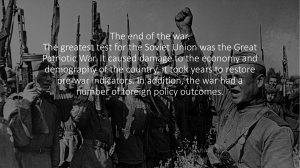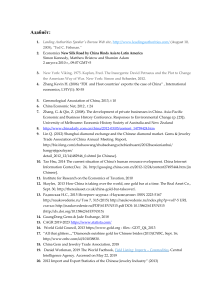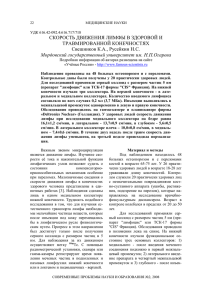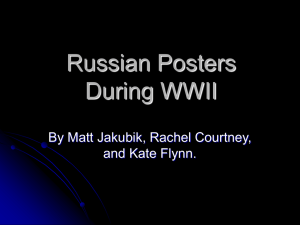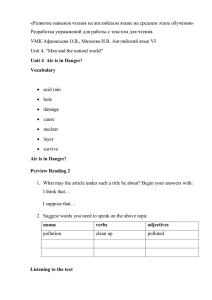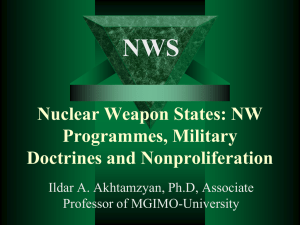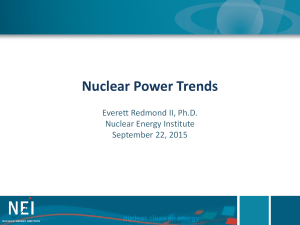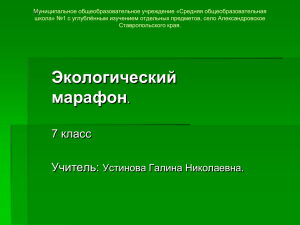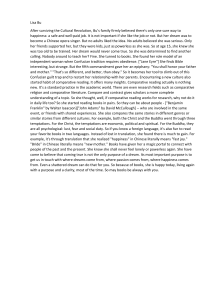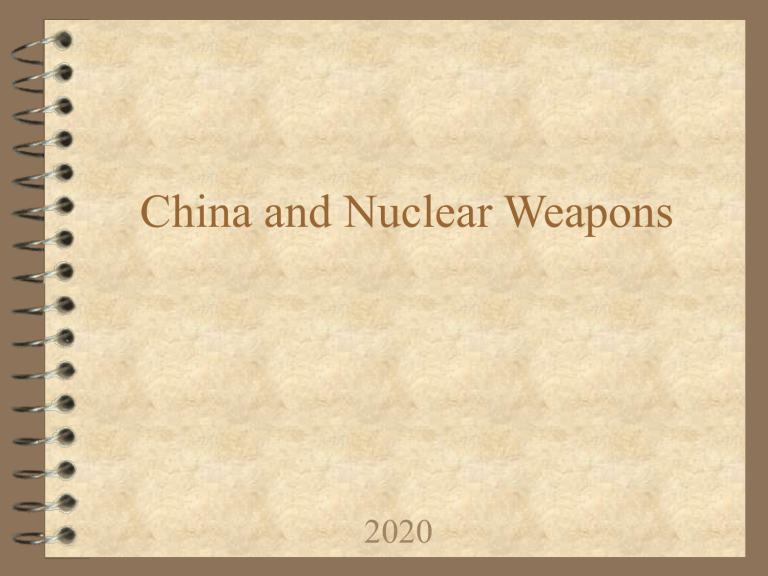
China and Nuclear Weapons 2020 Facts and Figures 1953: Research begins on nuclear capabitities • research spark delivered by Soviets • first weapon provided in exchange for Chinese help in mines • Later technology also given to Chinese from USSR 1958: First uranium-enrichment plant 1964: First nuclear bomb’ tests in Lop Nur 1967: Test of the first hydrogen bomb 1996: Last nuclear test Lop Nur Test Site Invention history The Soviet Union provided assistance in the early Chinese program by sending advisers to help in the facilities devoted to fissile material production In October 1957 USSR agreed to provide a prototype bomb, missiles, and related technology. The Chinese, who preferred to import technology and components to developing them within China, exported uranium to the Soviet Union, and the Soviets sent two R-2 missiles in 1958 Test History 1958 - China was already opposed to Khrushchev's post-Stalin policy of "peaceful coexistence" June 1959 - the two nations formally ended their agreement on military and technology cooperation USA position The American government was concerned about the program and studied ways to sabotage or attack it, perhaps with the aid of Taiwan or the Soviet Union, but Khrushchev was not interested. The Chinese conducted their first nuclear test, code-named 596, on 16 October 1964, and acknowledged that their program would have been impossible to complete without the Soviet help. Test History Recent testing • Last test was underground in 1996 • No test details have been released since • Have only tested 5% as many weapons as US and USSR/Russia • Had slowed in comparison to US and USSR/Russian tests Nowadays The number of nuclear warheads in China's arsenal is a state secret, unofficially – 260 in 2015. Currently believed to have weapons technology comparable to all other major nuclear powers May have weapons with yields on the order of tens to hundreds of kilotons US believes the Chinese could "more than double" the "number of warheads on missiles that could threaten the United States by the mid-2020's" Political course - white paper Early in 2011, China published a defense white paper, which repeated its nuclear policies of maintaining a minimum deterrent with a no-firstuse pledge. Yet China has to define what it means by a "minimum deterrent posture". This, together with the fact that "it is deploying four new nuclear-capable ballistic missiles, invites concern as to the scale and intention of China’s nuclear upgrade" THANKS
